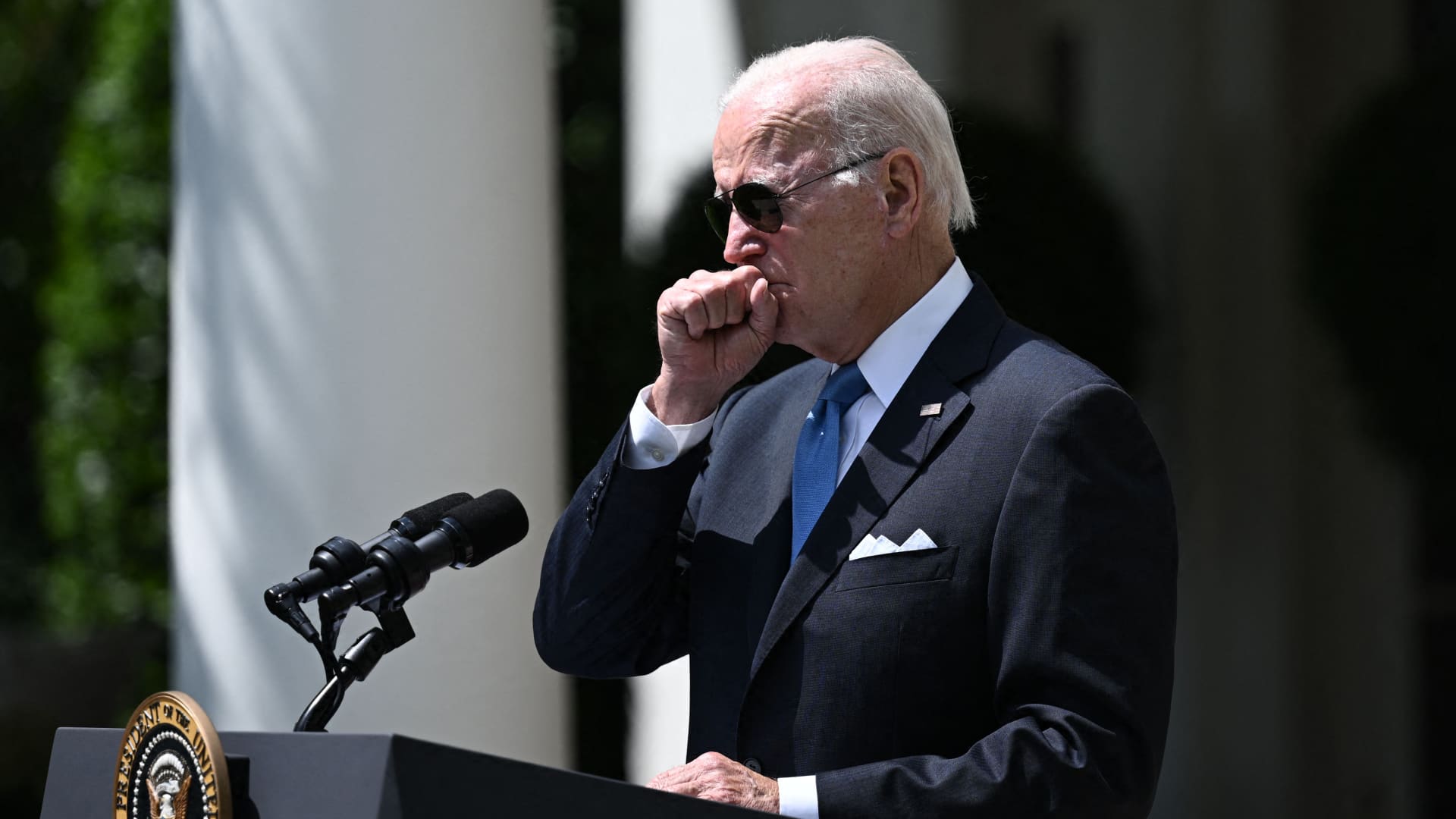ESG on the edge: Controversy weighs on sustainable ETFs


Investing in ESGs has taken a controversial turn in recent weeks as some states have taken aim at the sustainable funds.
This month, Florida banned its $186 billion pension fund from investing according to ESG factors. And in Texas, the state’s comptroller accused ten financial firms of boycotting energy companies. The move could force certain Texas government funds to sell any shares in these companies.
BlackRock was among those named in the accusation, although in a statement the company affirmed that it is not boycotting oil. But the shift in sentiment has led to increased scrutiny of how ESG funds are composed.
“It’s actually relatively simple, we’re not boycotting energy companies,” Arne Noack, Head of Systemic Investment Solutions for the Americas for DWS, told Bob Pisani on CNBC’s ‘ETF Edge‘ on Wednesday.
DWS is a major provider of ESG ETFs, including the MSCI USA ESG Leaders Equity ETF (USSG) and the S&P 500 ESG ETF (SNPE).
“[USSG and SNPE] have between 4% and 5% of a stake in energy companies, which is in line with the S&P 500,” he added.
Noack said that USSG, for example, is largely sector neutral compared to the MSCI USA Index benchmark, but only invests in companies that perform better than the average from the ESG angle.
The politicization of sustainable funds particularly stems from the question of what the products focus on and promote, and the factors considered when constructing one.
“ESG stands for Environmental, Social and Governance, and the focus has been on the ‘E’ part of it,” Todd Rosenbluth, head of research at VettaFi, said in an ‘ETF Edge’ interview on Wednesday. “Whether companies are too focused on climate change, and what’s happening related to that.”
Rosenbluth explained that the strategies are broadly diversified and assessed based on 30 different subfactors. Climate change is among them, but also issues like fair pay practices and gender diversity.
Some of the largest ESG funds have significant stakes in the energy industry. According to VettaFi, BlackRock’s ETFs ESGU and SUSA have 4.8% and 3.8%, respectively, in companies like Baker Hughes, Chevron, Exxon Mobil, Halliburton, and Valero Energy. The weighting for energy stocks in these funds are in line with the S&P.
“So how can you be favoring ESG and still have exposure to these large cap, multinational energy companies?” Rosenbluth said. “You can have both. These are intended to be broadly diversified products.”
The ESG industry is comprised of 186 sustainable ETFs, according to VettaFi, representing 6% of exchange-traded funds as a whole at about $100 billion in value. That’s about 1.5% of the dollar value of the ETF business as a whole.
While there have been efforts to standardize and codify what ESG means, the challenge remains of how to exactly define the products.
“We’re talking about funds that have different objectives that are all valid,” Mona Naqvi, Global Head of ESG Capital Markets Strategy at S&P Global Sustainable1, said on CNBC’s ‘ETF Edge’ on Wednesday. It just depends on the individual investor: Some want to divest completely, that’s fine. Some want to engage companies to work with them to improve, that’s also fine. But I think to paint all sustainable funds with the same brush and to expect the same outcomes…it’s actually doing a disservice to the many different individual perspectives that investors have, and the choice that we should be giving investors in a free market.”
The process of greenwashing is another hot button issue affecting the ESG industry. The term refers to when a company promotes a questionable green agenda by giving distorted impressions or misleading information about how its products are more eco-friendly.
“I wouldn’t say [greenwashing] is a big problem,” said Noack. “They very clearly outline the underlying methodology, and therefore make very transparent in how far the ESG scores are being used and not being used.”
As a fund manager of ETFs, Noack said that they do not have the discretion to deviate from methodology, and fully sticks to the rules that are published in their prospectus.
“As a concept, it’s very easy for us to all agree on the definition [of greenwashing],” Naqvi added. “But in real practical terms, what does that mean and how do you know when you see it?”
Naqvi brought up the example of oil majors being included under low-carbon ESGs. What if the company is diversifying and is moving more renewable each year, she asked, or what if it has more green to brown or gray revenues?
“We’re having issues defining ESG,” she said. “Defining greenwashing is even harder in many ways.”
SEC Chair Gary Gensler has asked for more clarity and specific rules around labeling the products. His proposed measures would prevent misleading or deceptive claims by U.S. funds on their ESG qualifications and increase disclosure requirements.
“That’s a very reasonable demand,” Noack explained. “It is very much in our interest that our investors very clearly understand what they invest in. Having standards that everybody has to adhere to, from my perspective, makes total sense.”
Strive recently launched its U.S. Energy ETF (DRLL) in an effort to push back on what the firm claimed was stakeholder capitalism by asset managers. The fund performs close to the S&P Energy Index at a higher cost.
According to Strive, the fund intends to use its shareholder engagement and proxy voting power to unlock the potential of the U.S. energy sector by rejecting shortsighted political agendas that they say have caused companies to underinvest in American oil, natural gas, and other forms of energy.
“Investors have choice,” Rosenblum said. “If they care that their energy company is going too far in their mind toward clean energy and they want to be able to be part of a strategy.”
But Rosenblum added that most investors are not concerned about how big companies like BlackRock are voting on what to include in its funds, and that Strive is putting a more political slant on the issue.
“They’re referring to this as capitalism in a different way,” he said. “It’s an ETF investment and should perform the way you want it to ultimately perform.
The debate over whether the success of an ESG fund boils down to profits or purpose remains, although they do not necessarily have to cancel one another out. While recent defensive moves from government entities and the industry alike have presented a unique challenge to the future of sustainable funds, Naqvi stressed that time horizon is critical.
“If you’re looking at a very short timeframe, maybe certain things appear to be more profitable,” she said. “But once you take that longer-term view, things like reputational considerations, potentially impending carbon taxes and pricing that makes it less profitable to invest, these things matter.”
This post has been syndicated from a third-party source. View the original article here.




